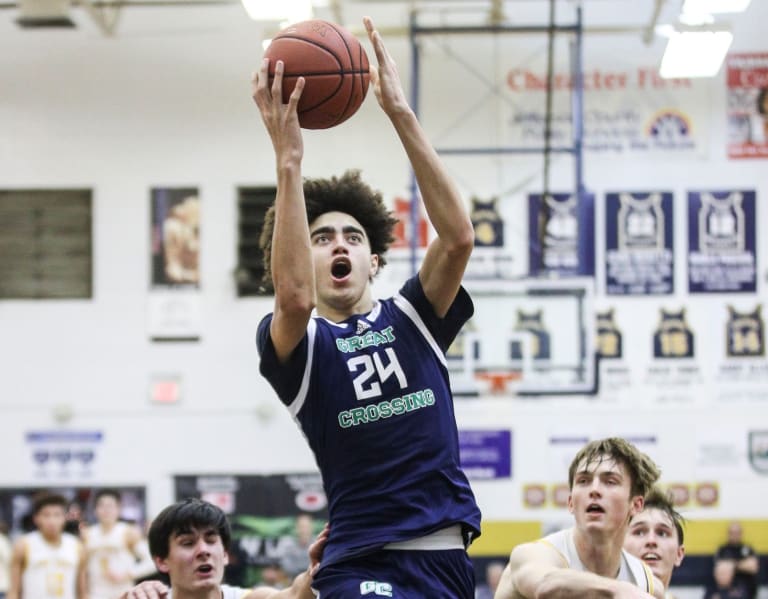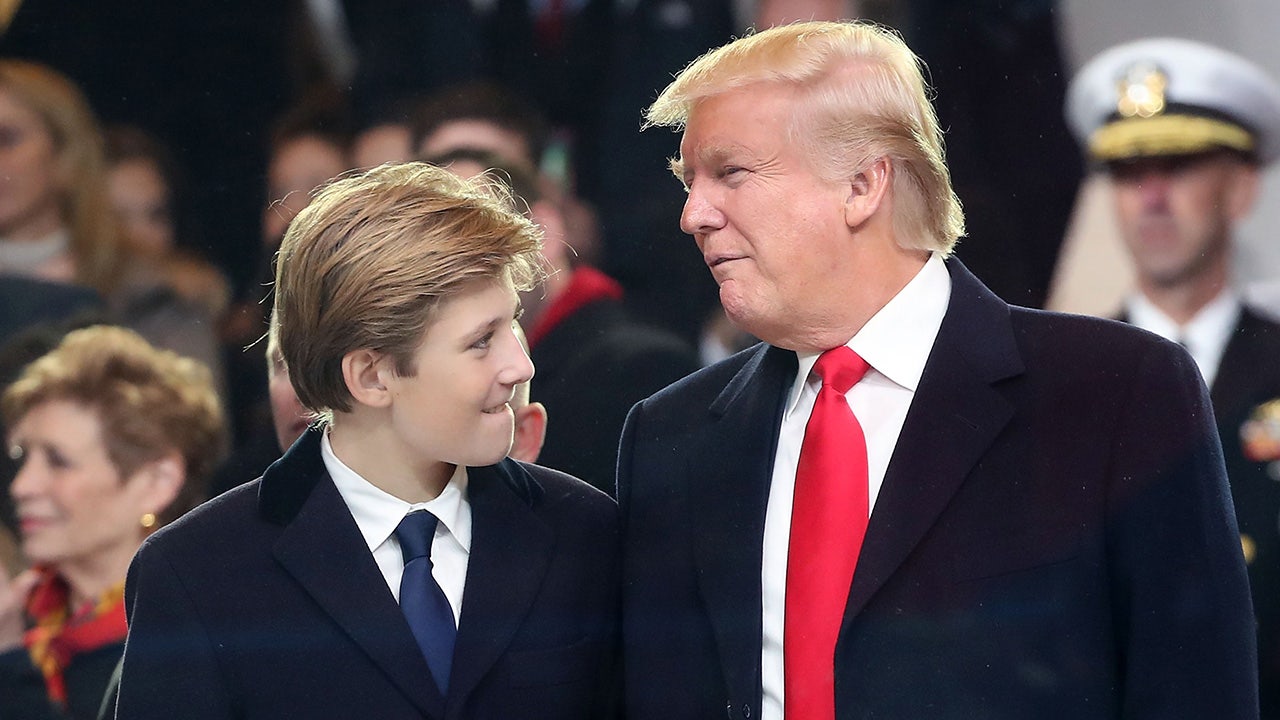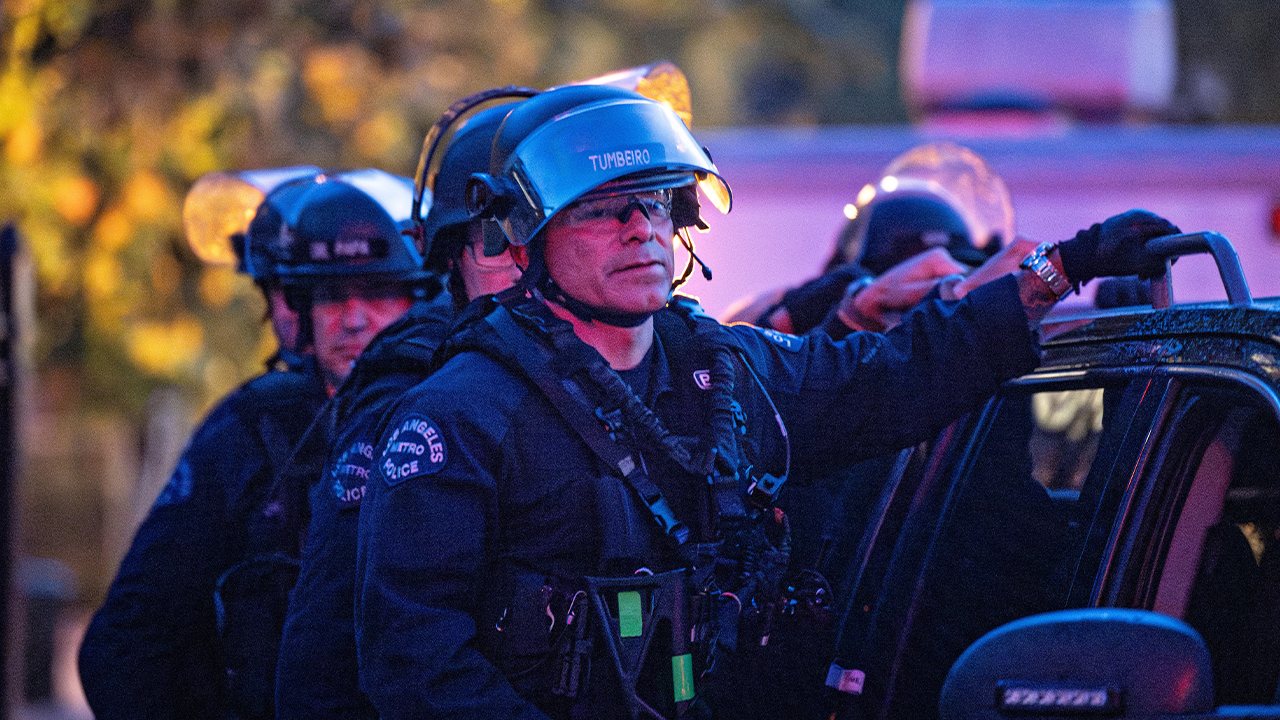Kentucky
Kentucky Oaks 2024 post positions are set. See who’s favored, odds at Churchill Downs
Post positions for the 2024 Kentucky Oaks are set; with Tarifa established as the favorite in the $1.5 million, Grade 1 stakes race during Saturday’s draw at Churchill Downs.
Trained by Brad Cox, Tarifa drew the No. 8 spot and leads the pack with 7-2 morning-line odds. Other top contenders include Leslie’s Rose (4-1), who drew the No. 14 spot, and Just F Y I (9-2), who drew the No. 13 spot.
A 1 1/8-mile race for 3-year-old fillies, the Oaks has an approximate post time of 5:51 p.m. Friday and will be the 11th of 13 races that day.
It will air on USA Network. It’s also available to stream via NBCSports.com, the NBC Sports app and Peacock.
Here’s a look at the post position draw with each filly’s trainer, jockey and morning-line odds. Click a horse’s name to learn more about her:
Kentucky Oaks 2024 post position, horse, trainer, jockey, odds
- Tapit Jenallie, Eddie Milligan Jr., Emmanuel Esquivel, 30-1
- Gin Gin, Brad Cox, Florent Geroux, 30-1
- Where’s My Ring, Val Brinkerhoff, Jose Lezcano, 15-1
- Regulatory Risk, Chad Brown, Jose Ortiz, 20-1
- Thorpedo Anna, Kenny McPeek, Brian Hernandez Jr., 5-1
- Lemon Muffin, D. Wayne Lukas, Keith Asmussen, 30-1
- Fiona’s Magic, Michael Yates, Luis Saez, 30-1
- Tarifa, Brad Cox, Flavien Prat, 7-2
- Everland, Eric Foster, Abel Cedillo, 30-1
- Into Champagne, Ian Wilkes, Julien Leparoux, 30-1
- Ways and Means, Chad Brown, Tyler Gaffalione, 5-1
- Power Squeeze, Jorge Delgado, Daniel Centeno, 12-1
- Just F Y I, Bill Mott, Junior Alvarado, 9-2
- Leslie’s Rose, Todd Pletcher, Irad Ortiz Jr., 4-1
Also eligible
15. Our Pretty Woman, Steve Asmussen, Joel Rosario
16. Candied, Todd Pletcher, Luis Saez
This story will be updated.
Reach Louisville men’s basketball reporter Brooks Holton at bholton@gannett.com and follow him on Twitter at @brooksHolton.

Kentucky
Kentucky UPEPA Held Not Available In Federal Court In Peach

The Bluegrass State Protects Free Speech Unless You Are In Federal Court
The case of Peach v. Hagerman, 2024 WL 1748443 (W.D.Ky., April 23, 2024), arose from a Kentucky social worker who filed a complaint alleging possible child abuse. The person against whom the claim was made prevailed and fought off the charges at a hearing, and then sued the social worker for malicious prosecution, defamation and some other things arising from the social worker’s complaint. The social worker filed a motion to dismiss the lawsuit under Kentucky’s new Uniform Public Expression Protection Act (UPEPA), asserting the social worker’s protected right to file her complaint.
Now, however, we get to the inevitable fly in the ointment: The lawsuit had been filed not in Kentucky state court, but rather in the U.S. District Court for the Western District of Kentucky. Even before the UPEPA special motion to strike could be heard, there was a preliminary question as to whether Kentucky’s UPEPA even applied at all in federal court.
The United States of course has a bifurcated legal system of federal and state courts. A federal court sitting in diversity jurisdiction, however, is to apply the state law of the district in which the federal court is found. However, federal courts have their own procedural rules, embodied in the Federal Rules of Civil Procedure, known as the FRCP. What happens when the FRCP conflicts with state law?
The rule stated by the U.S. Supreme Court is that if the FRCP answers whatever issue is before the district court, then the FRCP shall apply to resolve that issue to the exclusion of the contrary state law. The question before the district court here is whether the Kentucky UPEPA should apply to allow the social worker a chance for an early dismissal of the plaintiff’s defamation case, or whether the FRCP should apply as it normally does in cases to allow the plaintiff to conduct discovery before the court seriously dismissal.
The district court noted that there was a split of rulings between the U.S. Circuit Courts of Appeals. The U.S. Circuits which have ruled that the FRCP applies instead of a state’s Anti-SLAPP laws (which would include the UPEPA) are the 2nd, 5th, 10th, 11th and DC Circuits. However, the 1st and 9th Circuits have gone the other way and held that the applicable state’s Anti-SLAPP laws should apply instead of the FRCP. Kentucky sits in the 6th Circuit, which so far as not decided the issues, although the district court noted that an appeal of this issue from Tennessee was before the 6th Circuit. So what to do?
The district court here held to the effect that the FRCP essentially provides for a procedure for dismissal of a claim through a summary judgment motion (FRCP 56), and this motion may be held at the onset of the litigation through an FRCP 12(b)(6) motion to dismiss. Thus, since the FRCP already resolved the issue, there FRCP would be applied instead of the Kentucky UPEPA.
Having held that the Kentucky UPEPA would not apply since the FRCP allows for an early dismissal of a claim, the court then next noted that summary judgment should not ordinarily be granted until the parties had completed discovery, which had not happened in this case. Therefore, the social worker’s motion was denied.
ANALYSIS
Although couched as procedural statutes, Anti-SLAPP statutes (including the UPEPA) are instead substantive law statutes that provide a substantive right to persons to be free of extended litigation when they are sued as a result of their lawful exercise of their free speech rights. The Prefatory Note to the UPEPA states:
“An Anti-SLAPP law, at its core, is one by which a legislature imposes external change upon judicial procedure, in implicit recognition that the judiciary has not itself modified its own procedures to deal with this specific brand of abusive litigation. Although procedural in operation, these laws protect substantive rights, and therefore have substantive effects. So, it should not be surprising that each of the 34 legislative enactments have been performed statutorily—none are achieved through civil-procedure rules.”
Comment 2 to UPEPA § 2 elaborates:
“Although the Act operates in a procedural manner—specifically, by altering the typical procedure parties follow at the outset of litigation—the rights the act protects are most certainly substantive in nature. See U.S. ex rel. Newsham v. Lockheed Missiles & Space Co., Inc., 190 F.3d 963, 972-973 (9th Cir. 1999) (applying California’s anti-SLAPP law to diversity actions in federal court because the statute was ‘crafted to serve an interest not directly addressed by the Federal Rules: the protection of ‘the constitutional rights of freedom of speech and petition for redress of grievances.’). Otherwise stated, the Act’s procedural features are designed to prevent substantive consequences: the impairment of First Amendment rights and the time and expense of defending against litigation that has no demonstrable merit. Williams v. Cordillera Comms., Inc., No. 2:13–CV–124, 2014 WL 2611746, at * 1 (S.D. Tex. June 11, 2014). As stated by one California court, ‘[t]he point of the anti-SLAPP statute is that you have a right not to be dragged through the courts because you exercised your constitutional rights.’ People ex rel. Lockyer v. Brar, 115 Cal. App. 4th 1315, 1317 (4th Dist. 2004).”
That some of the U.S. Circuits have utterly missed this point has lead to forum shopping on these Circuits by way of defamation plaintiffs bringing in federal court what would otherwise be purely state court proceedings, just to avoid the state Anti-SLAPP laws. How the Sixth Circuit will ultimately handle these cases is anybody’s guess, but eventually the U.S. Supreme Court will need to resolve the split within the Circuits, assuming that Congress does not take the matter into its own hands.
If you are curious about how the Federal Rules of Civil Procedure come about, the Rules Enabling Act of 1934 (28 USC § 2071, et seq.) authorizes the U.S. Supreme Court to enact court rules or procedure. Our highest court, however, delegates that function to the Judicial Conference to come up with those rules. The Judicial Conference is made up of ― you guessed it ― judges of the U.S. Circuit and District Court. The Judicial Conference is thus made up of the very judges who have failed to take action against the problem of so-called SLAPP suits in the first place. “Nothing to see here, Ma’am, now please do just move along.”
Ideally, the Judicial Conference would amend FRCP 12, which is the rule that allows for the dismissal of certain cases before the litigation really starts rolling along, so as to better protect free speech defendants from meritless litigation, but they have not done so. As just discussed, federal judges are historically loathe to admit that there is even any problem with anything in the first place, and so the odds of that happening are low. Thus, if anything is going to happen with Anti-SLAPP in the federal courts, it will likely take Congressional action to make it happen.
From time to time, Anti-SLAPP Acts have been introduced into various sessions of Congress, but those introductions have gone nowhere as so much good legislative proposals have done with that highly dysfunctional institution. This is odd as at the state level, at least, Anti-SLAPP legislation has proven to be that rare breed which is popular with both political parties. Nonetheless, with Anti-SLAPP legislation now having been adopted by a solid majority of states, pressure for a federal statute will continue to grow and I expect that someday we will seen a President sign it into law.
In the meantime, at the federal level the application of Anti-SLAPP laws is a mess as demonstrated by this case.
Kentucky
Central Kentucky Heart Walk raises $360k

LEXINGTON, Ky. (WKYT) -The American Heart Association hosted a heart walk at Keeneland Saturday morning where $360,000 was raised for the annual Central Kentucky Heart Walk.
Executive Director of the American Heart Association in Central Kentucky, Andrea Ooten says the funds are going straight back into research.
“Over 100 years, we have been working tirelessly to find different solutions to heart disease and strokes,” she said. “Whether that’s in funding research for treatment plans or prevention, so people can survive if they have a heart attack or a stroke.”
Ooten says around 2,000 people participated in the walk for different reasons. Many of the participants were walking to support their loved ones or are a survivor themselves, like Richard Green.
“I had five bypasses in 1999, 25 years ago so I’m celebrating,” Green said.
Green says that at 80 years old, it is nice to see people of all ages supporting this cause.
“It’s nice to be among others that have heart surgery and heart procedures,” he said.
Among the other survivors was Dan Zuber, who had an aortic dissection when he was coaching a middle school basketball game in Clarke County. A year later, his wife Wendy could relate.
“Last fall after a series of unusual symptoms, that began with a prescient cough and chest congestion, I found out I had severe mitral valve prolapse and regurgitation requiring surgery,” Wendy Zuber said.
Not too many people can say that a middle school girls’ basketball game saved their life, but the Zuber’s can. Wendy says she hopes stories like her family’s will encourage other people to be lifesavers instead of bystanders.
The American Heart Association will host another Heart Walk to raise awareness and funds on May 18 at Clarke Regional Medical Center.
Copyright 2024 WKYT. All rights reserved.
Kentucky
TideIllustrated – New Kentucky staff to meet with in-state F Malachi Moreno

HOOVER, Ala. – One of the most athletic and productive big men in the 2025 class, 7-footer Malachi Moreno is in the midst of a stock-raising spring with the Indiana Elite grassroots program and promises to have an interesting year on the recruiting front. Both Arkansas and in-state Kentucky are in pursuit of the Lexington-area center and other major players have also taken note of his talent.
Rivals recently spoke with Moreno about where things stand in his process and which schools are heavily in the mix.
*****
ON UPCOMING VISITS:
“There is nothing set in stone right now, but I just talked to coach [Kentucky] coach [Mark] Pope. He wants me to come on a visit there soon. I’m only like 15 or 20 minutes away, so I’ll go for sure in the next week or two.”
ON HIS FIRST CONVERSATION WITH POPE:
“He called me, like, give or take a week after he got the job. He just told me that he was looking forward to recruiting me and wants me to get on campus soon. He was saying that my play style fits his system, so it was nice to hear that. It was nice for him to call me so soon with him being a new coach because I know he has to get acclimated, so for him to reach out so quickly felt great.”
ON MARK POPE:
“I knew he was the captain of the untouchable, so he knows about the job and he knows how hard he’s going to have to work there. Seeing that and seeing his work ethic, I know he’s ready to bring Kentucky another banner. What is it? Banner No. 7?”
ON OTHER SCHOOLS IN FREQUENT CONTACT:
“Arkansas reached out to tell me I still have my offer. I talked to them about everything. USC, North Carolina and Kansas also reached out throughout my season. With North Carolina, they have a rule that Hubert Davis has a rule that he has to see you in person before they get you down there for visits, so I’m waiting for that.”
ON SEEING JOHN CALIPARI IN ARKANSAS RED:
“It’s a little weird to me just because he’s been at UK my entire life. I mean, this was a job he wanted and a job he went for, so I get it. He did all he needed to do at Kentucky, so I guess he wants to rebuild Arkansas now.”
Moreno’s standing as a Lexington-area native makes Kentucky impossible to dismiss, and the fact that Mark Pope has already reached out to schedule a meeting with the in-state star bodes well for the Wildcats’ chances.
Arkansas is expected to be a major pain in UK’s side here, however. Louisville, Iowa and Indiana are also in the mix to different extents, while other heavy-hitters could join the fray this summer. Moreno feels like a high-priority target for Pope, however, so the Wildcats will have every opportunity to close the deal down the road.
-

 News1 week ago
News1 week agoPolice enter UCLA anti-war encampment; Arizona repeals Civil War-era abortion ban
-

 News1 week ago
News1 week agoSome Florida boaters seen on video dumping trash into ocean have been identified, officials say
-

 Politics1 week ago
Politics1 week agoThe White House has a new curator. Donna Hayashi Smith is the first Asian American to hold the post
-

 Education1 week ago
Education1 week agoVideo: President Biden Addresses Campus Protests
-
)
) Movie Reviews1 week ago
Movie Reviews1 week agoThe Idea of You Movie Review: Anne Hathaway’s honest performance makes the film stand out in a not so formulaic rom-com
-

 World1 week ago
World1 week agoUN, EU, US urge Georgia to halt ‘foreign agents’ bill as protests grow
-

 World1 week ago
World1 week agoIn the upcoming European elections, peace and security matter the most
-

 World1 week ago
World1 week agoArizona Senate repeals near-total 1864 abortion ban in divisive vote

















